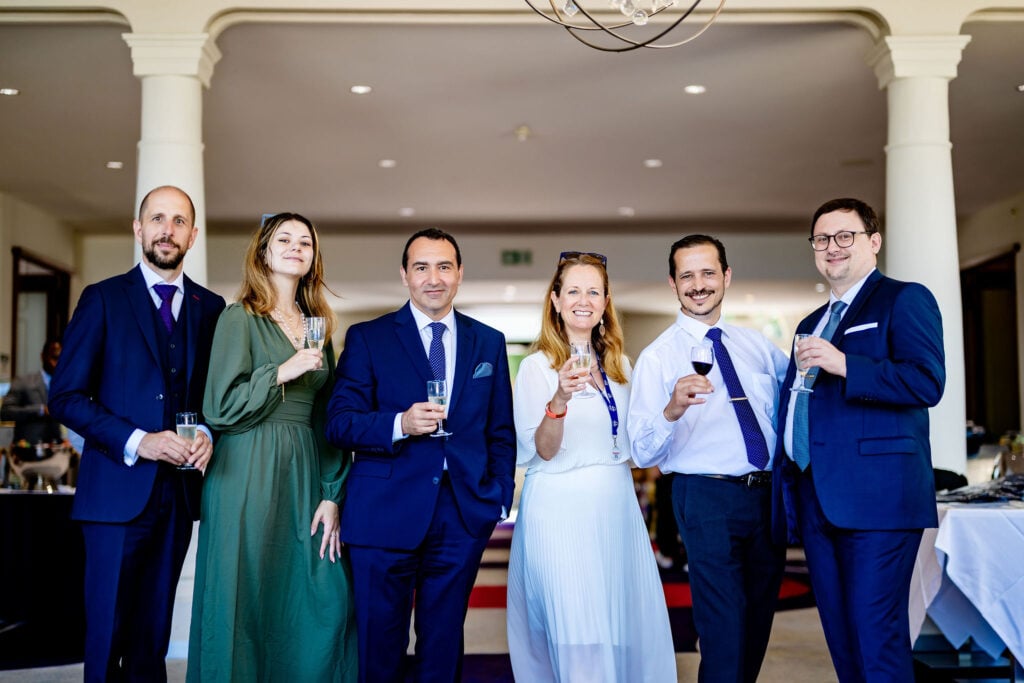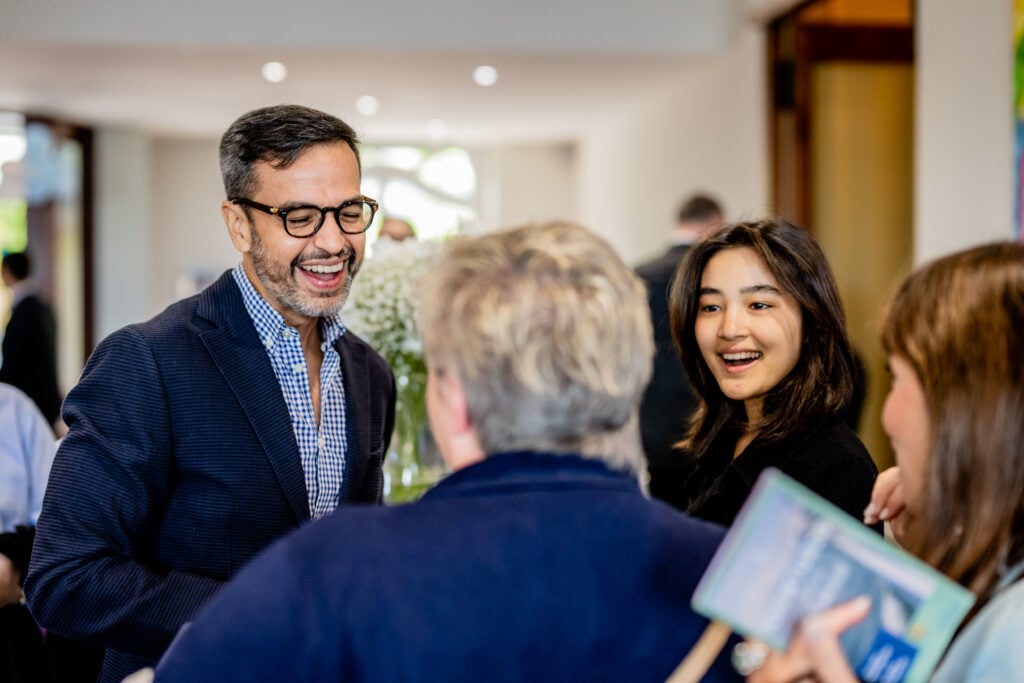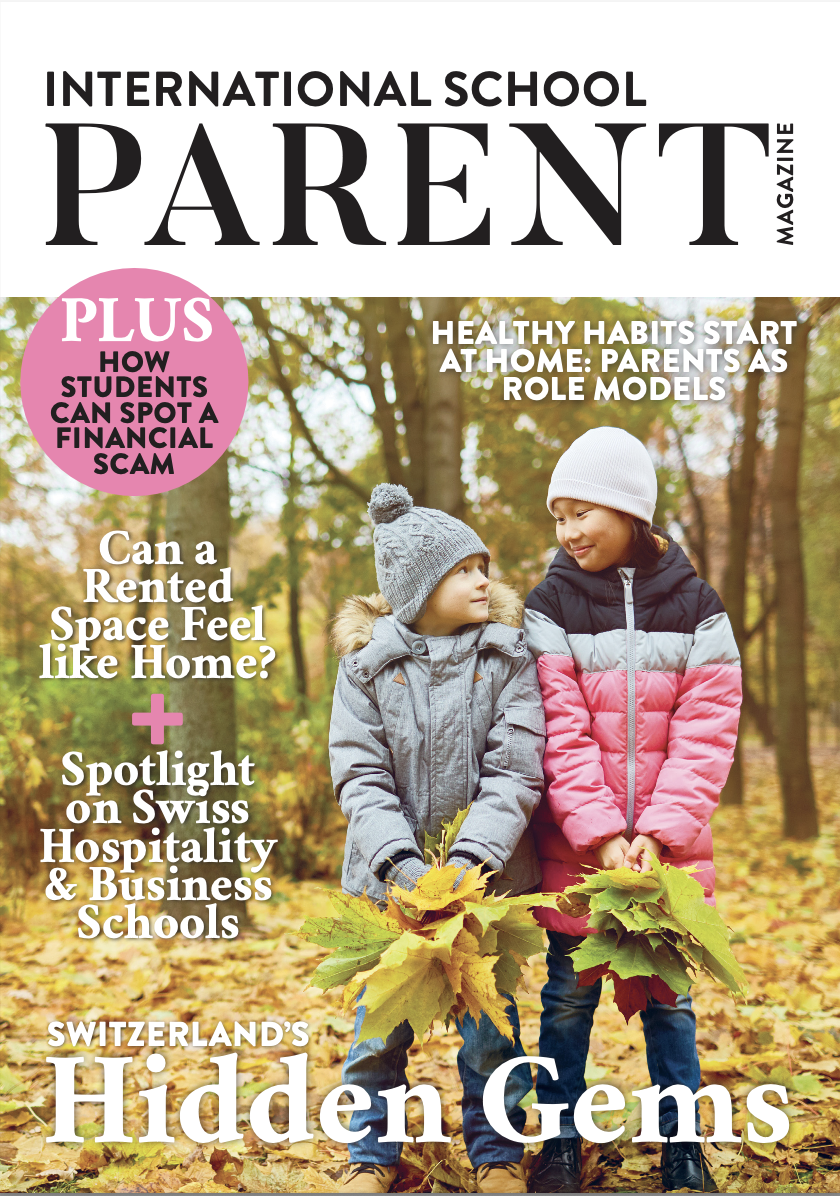Meet Claire Jollain – Dean of HIM Business School
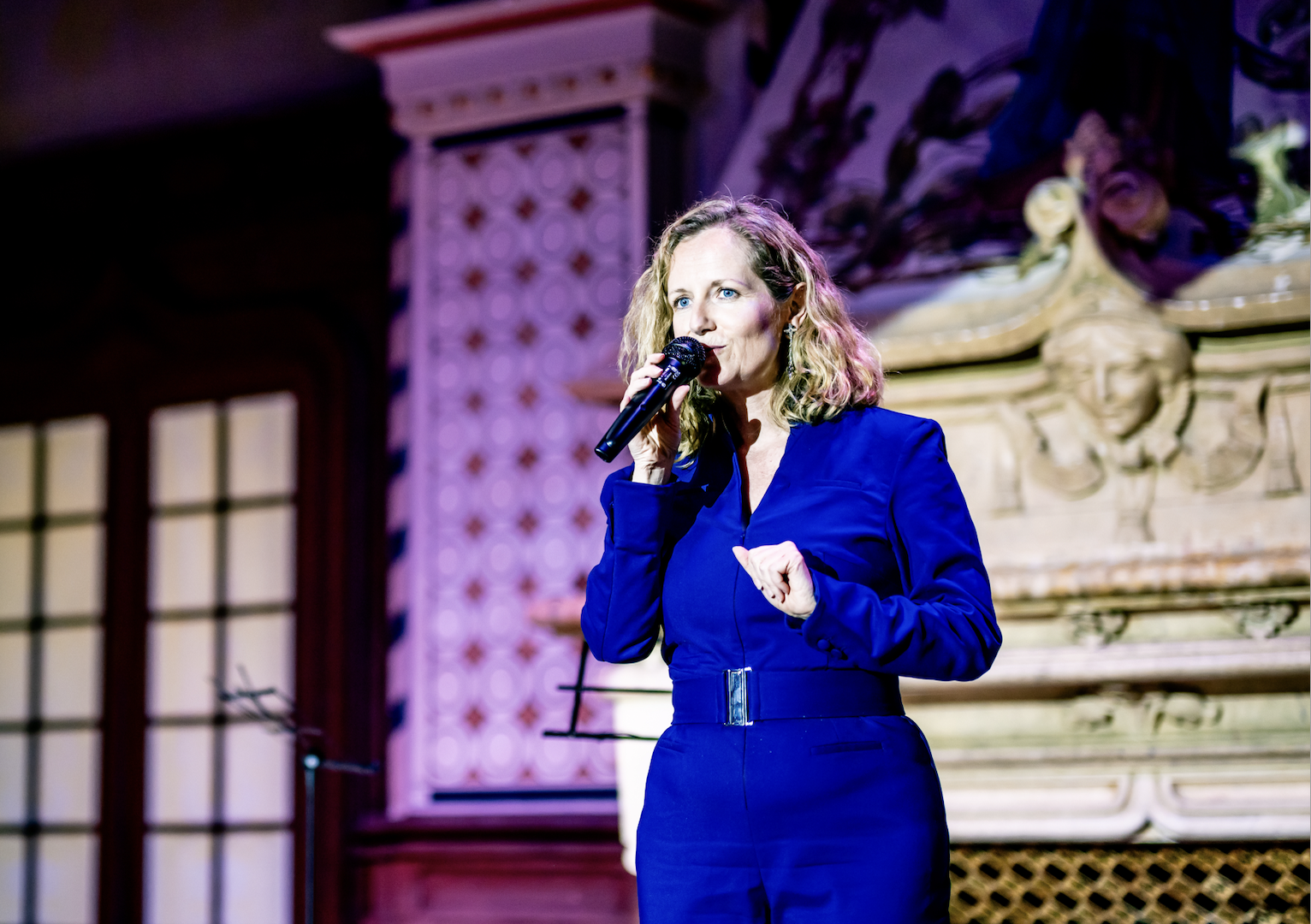
HIM Business School – originally founded in 1984 as École Hôtelière de Montreux – began as a traditional hotel school. In 2002, it joined Swiss Education Group (SEG), a network of world-leading hospitality and business institutions, where it evolved into a modern business school, blending its strong hospitality heritage with contemporary business education.
Today, HIM offers a Bachelor of Business Administration (BBA) in partnership with Northwood University (USA) and, from 2026, will also award a Swiss Federal Diploma in Business Administration.
We recently had the pleasure of speaking with Claire Jollain, Dean of HIM, about the school and its “Be World Ready” educational philosophy.
With experience across diverse industries, from automotive to luxury, you bring a unique perspective to higher education. How have these experiences shaped your leadership style and the way you guide students and faculty at HIM?
One of my first jobs was in the automotive industry, working in customer care. At the time, I thought it was a tough job—dealing with complaints all day—but looking back, it taught me invaluable lessons. When a car breaks down, it’s never just about the repair cost; it’s also about logistics, emotions, and people’s attachment to their vehicle. My role was to listen, understand, and find solutions, which gave me strong skills in real customer care.
That experience shaped how I lead today: focusing on people as individuals, recognising that what works for one person may not work for another. I bring the same approach to HIM—being transparent and supportive, but also clear and consistent with expectations. Students know I care deeply about their success, but they also know the rules are firm and fair.
Since joining the Swiss Education Group in 2014, you’ve held several key roles leading up to your appointment as Dean of HIM. Looking back, what were some of the defining moments in your journey that confirmed your passion for education and the hospitality sector?
I always tell students that the most important thing in life is not titles or money, but feeling meaningful. For me, that sense of purpose comes from my work.
At HIM, we welcome students at 18 or 19, many living away from home for the first time. Between 18 and 22, young people undergo a huge transformation—from teenagers into confident young adults. Our role is to guide and support them through that journey.
Every graduation, when I hand over diplomas, I think back to who they were three years earlier. Seeing how they’ve grown is incredibly inspiring, and knowing that I—and our team—played a part in that transformation is the most rewarding aspect of my career.
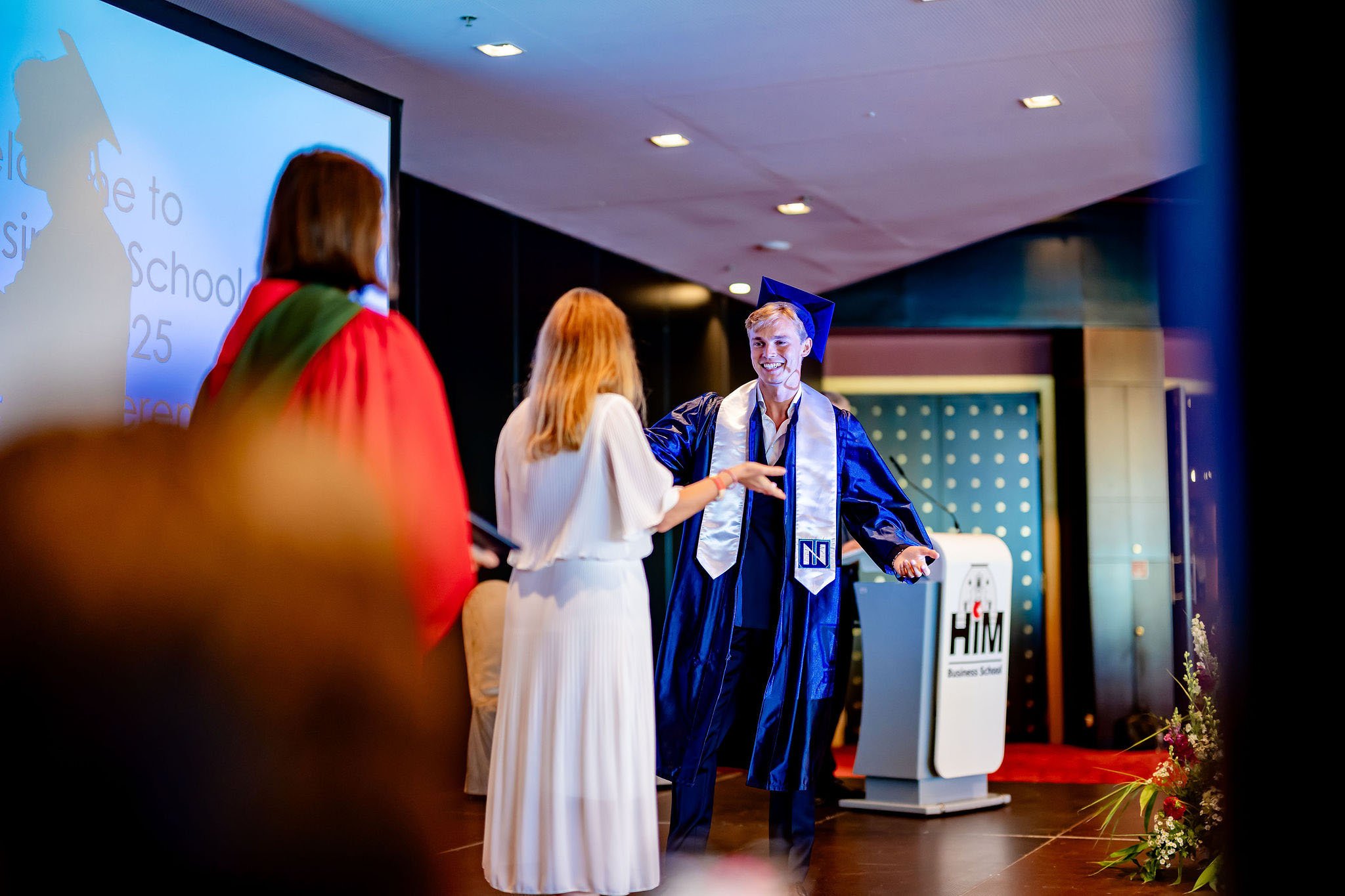
You meet alumni all over the world. What stands out to you most about those encounters?
I feel very fortunate to meet alumni wherever I travel, thanks to having worked across all SEG schools. What strikes me most is how many say that Switzerland shaped them—and by that, they mean the school. Even 30 or so years later, they still speak about the lasting impact of their time with us.
Earlier this year, we welcomed back our very first graduates – 35 years after they left. Some came from as far as Australia, which shows the depth of their connection. I believe this strong bond is reinforced by campus life. Students don’t just study here; they live here. They eat, laugh, cry, and grow together – creating memories that stay with them for life.
‘Be World Ready’ is HIM Business School’s guiding principle, emphasising hands-on learning, industry connections, and practical skills. From your perspective as Dean, what does ‘being world ready’ mean for students, and how is this philosophy reflected in their education and career preparation at HIM?
I see Be World Ready as more than a guiding principle—it is our mission and our promise to every student. Unlike traditional business schools, where industry contact often means a lecture for hundreds of students, at HIM we integrate real companies directly into our curriculum.
Take our finance students, for example. In their Portfolio Management class, they work with Edmond de Rothschild, a leading private bank. At the start of term, the bank introduces students to its work and gives them access to a platform that mirrors the Swiss markets. In teams, students manage a virtual CHF 1,000,000 portfolio, applying what they learn and adjusting strategies each week with guidance from their teachers.
At the end of the term, Edmond de Rothschild reviews each team’s performance and compares it to their own professionals’ results on the live market. This makes the learning experience immediate and concrete—students are not just studying theory, they are actively investing alongside industry experts.
Another example is our collaboration with Bulgari. Wanting to better attract Gen Z customers, they invited our luxury students to their boutique ahead of major renovations planned for 2026. Students were asked to evaluate the customer experience from a Gen Z perspective and present recommendations directly to the brand.
These projects show how concrete our students’ learning is—they are not just reading case studies, they are living them.
We also prepare students by giving them tools to understand the job market. For instance, we developed an AI tool that scans thousands of company websites to identify the hard and soft skills employers are looking for in specific fields, such as luxury. Students can use this insight to reflect on their strengths and adapt their studies accordingly.
At the same time, we use this data to keep our curriculum aligned with industry needs. By mapping employer demands against what we teach, we can identify gaps and adapt, ensuring our graduates are equipped with skills that are directly relevant to the careers they want to pursue.

Can you provide an example of how graduates have demonstrated that they are “world ready” in their careers or professional endeavours?
Let me share two stories that capture what it means to be “world ready.”
The first is Ioana, who was interning at Fossil. One day she called me and said, “They want to stop my internship!” Naturally, I was worried—until she explained, “They want to hire me full time.” It doesn’t happen to everyone, but it shows how quickly our students can prove themselves.
The second is Karolina, who studied business with us before HIM formally became a business school. During her internship in Monaco, COVID turned her plans upside down—hotels were closing, but real estate was booming. She drew on her hospitality training, especially her customer care and soft skills, and soon became a successful real estate broker.
Stories like these remind me how adaptable and resilient our graduates are. They take what they’ve learned at HIM and use it to thrive in very different fields.
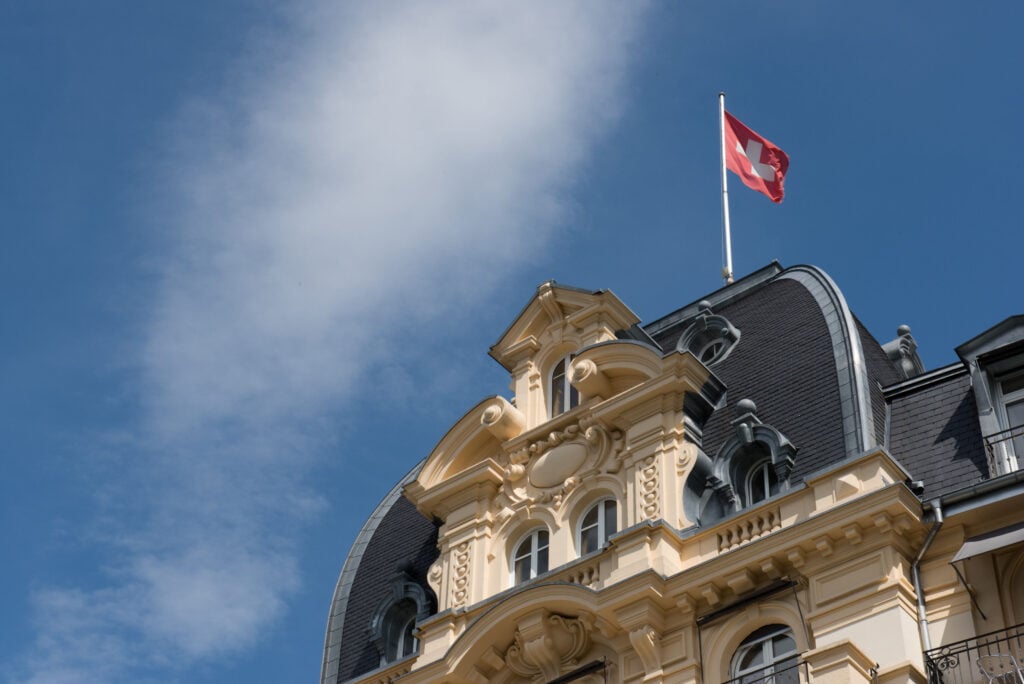
What does the student body at HIM look like in terms of diversity and nationalities?
What’s unique at HIM is that no single nationality dominates. You won’t find 25 students from one country and only a couple from another. Our largest group is Swedish, but even then they make up less than 12% of the student body. We also welcome students from countries like Myanmar and Russia, creating a truly diverse community.
At the moment, we don’t have many Swiss students, but that is changing. From October 2026, in addition to our Bachelor in Business Administration from Northwood University, we will also award a Swiss Federal Diploma in Business Administration. This new recognition will make HIM even more attractive to Swiss students.
We also offer a bilingual French track: year one is taught in French, year two is split between French and English, and by year three the programme is fully in English.
As the business world continues to evolve, how does HIM plan to adapt the “Be World Ready” philosophy to prepare students for future challenges and opportunities?
Our curriculum is designed to be dynamic. Each year we review data, consult industry partners, and adapt at least 30% of the content to ensure it stays relevant. We also host a symposium where companies review our courses, exams, and projects, and share feedback—this collaboration strengthens our curriculum and ultimately the workforce.
We are also embracing artificial intelligence. To do this responsibly, we focus first on AI literacy—not only for students but also for faculty and staff. We offer a class on Innovating with AI and have even developed our own GPT, created by our Head of Innovation, Antoine Casanova. It is designed to encourage critical thinking by questioning students in the same way Antoine does, helping them reflect more deeply.
Since students already use AI in their research, we provide clear guidelines. For example, if AI is used to support a report, the conversation must be included as an appendix. This way, students learn to use the tool transparently and responsibly.
At HIM, “Be World Ready” is not just about academics—it is about shaping confident, adaptable individuals who thrive in a global community. By combining industry expertise with a supportive learning environment, we ensure our students leave not only prepared for their careers, but also inspired to make a positive impact wherever life takes them.
